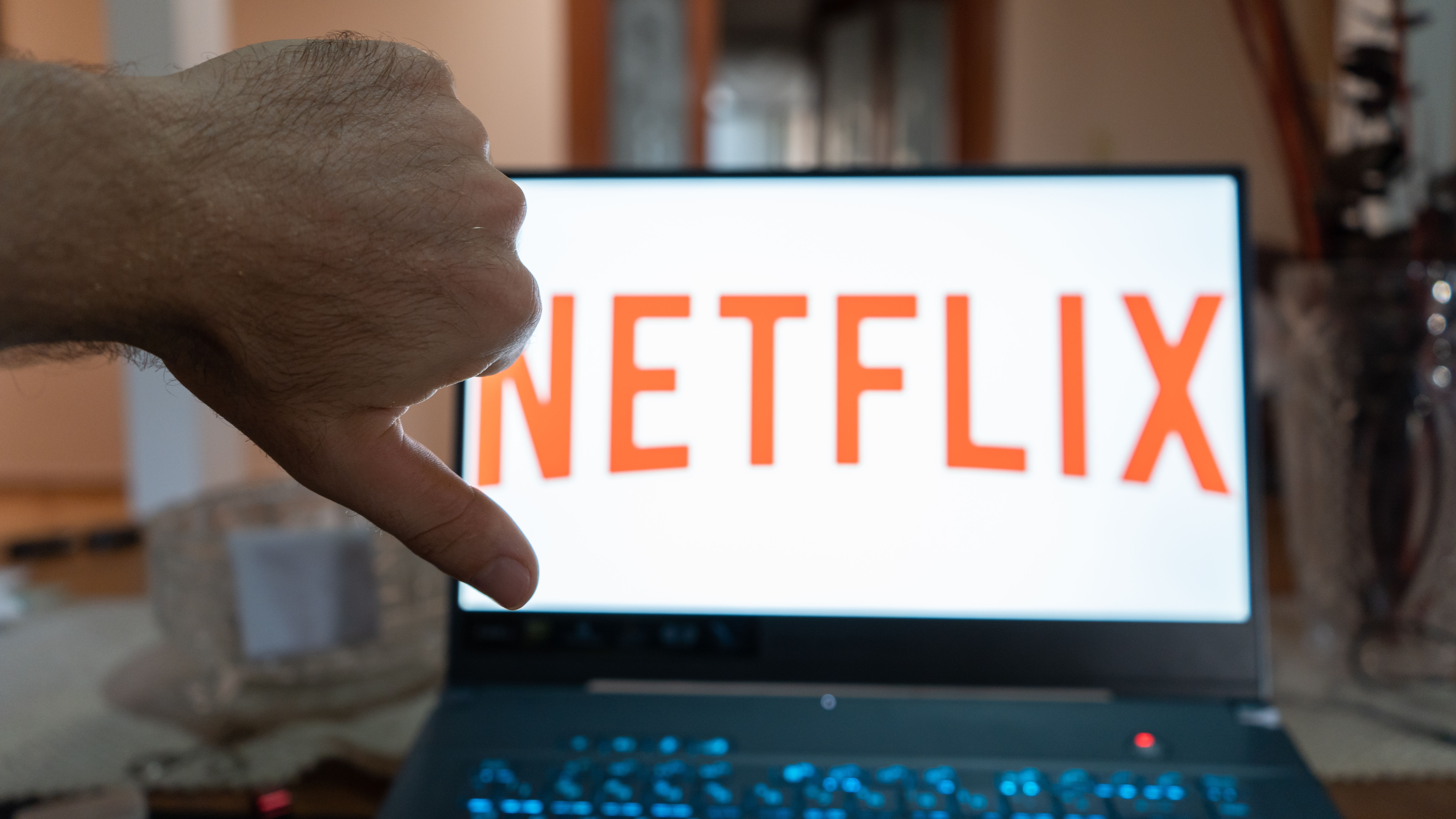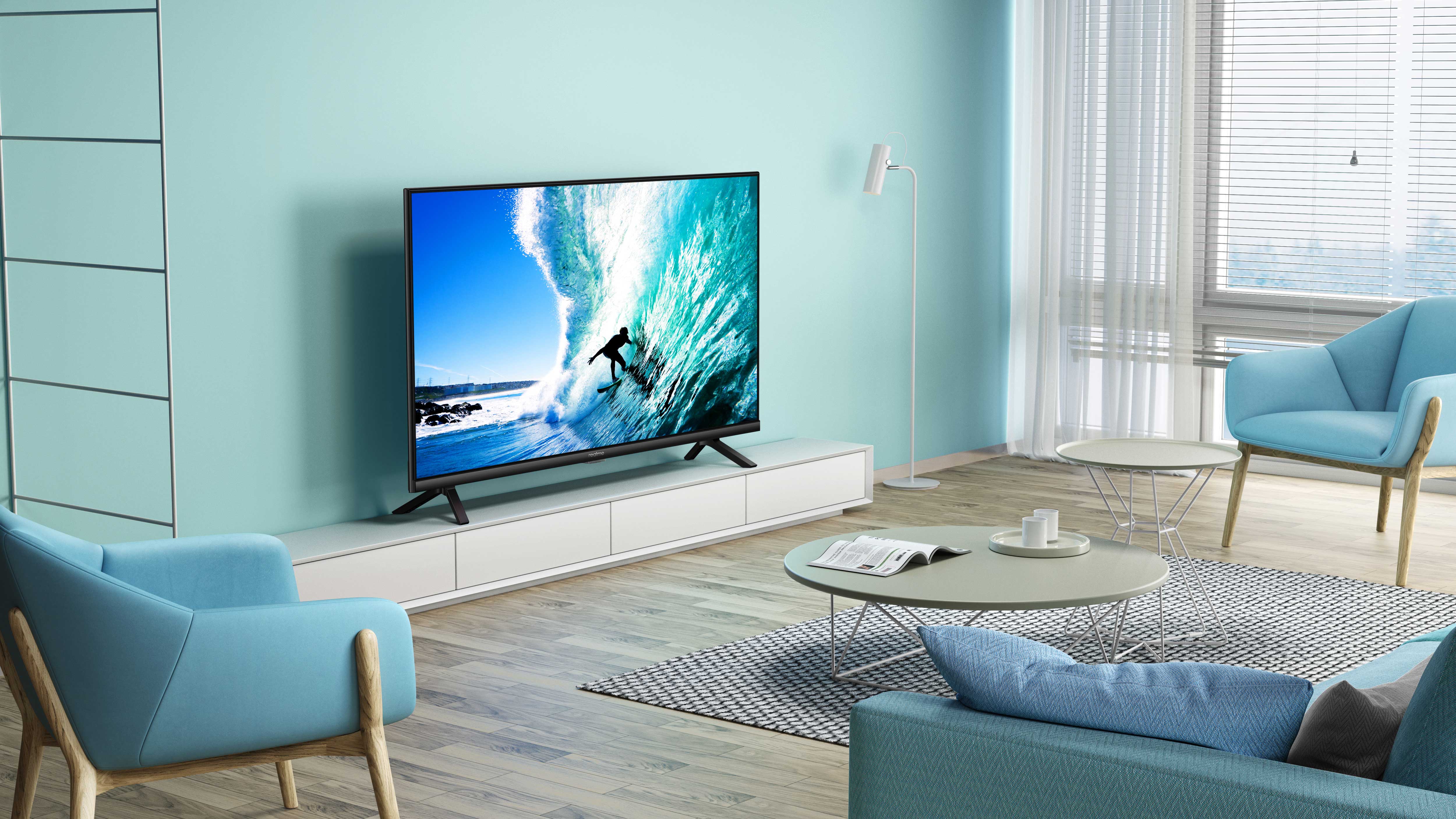Netflix hiking prices again?! I'm going back to cable TV
Streaming services can't get their act together, so I'm out

Sign up for breaking news, reviews, opinion, top tech deals, and more.
You are now subscribed
Your newsletter sign-up was successful
Streaming was a mistake.
That's the only thing I can think after hearing that yet another streaming service, this time Netflix, is raising its prices yet again.
When streaming first took off a decade ago, it was led by people like me, Millennial cord-cutters who saw the high monthly price of cable TV and opted to save what little money we had (this was the unending aftermath of the 2008 Financial Crisis, after all) and just watch the best Netflix shows.
At the time, those of us who grew up on Napster and Kazaa, Limewire, and The Pirate Bay didn't think twice about sharing our streaming passwords with each other.
Now, streaming services have done away with that, which is fair enough, but they're also raising their prices and running ads on their basic plans. Which, again, is fair enough. With the end of the strike by the Writer's Guild of America, streaming services are going to have to pay the writers of the shows on their platforms more for their work, so that cost is going to get passed onto the customer (full disclosure: I am a member of the Writer's Guild of America, East, though digital media members were not on strike and are not covered by the contract negotiated by the studios and the guild).
And it's not just Netflix. Disney Plus is raising its prices, Discovery Plus is raising its prices, Max is raising its prices, and all three services have ad-supported tiers. That doesn't include Hulu, Peacock, and all the other services that are doing the same or soon will. Add it all together and we're talking about serious money, which makes me wonder what the hell was it all for?
So screw it, I'm going back to cable TV.
Sign up for breaking news, reviews, opinion, top tech deals, and more.
Yes, cable companies are terrible and their plans expensive, but it's simpler

The things that drove me away from cable TV in the 2010s still exist. Cable TV plans are still expensive, customer service is generally awful, and the we-can't-call-it-a-cartel carve-ups of US states, cities, and even neighborhoods by cable providers who get exclusivity agreements from landlords means that what cable company you get in the US is entirely dictated by your street address. Your cable company sucks? Too bad, you get what you get.
This way of doing things is a huge part of why I left cable TV behind a decade ago and switched to streaming services to begin with. You know, back when Netflix cost you $9.99 and you could form your own cartel with your friends and pool your streaming services together like we were all still in Zuccotti Park.
But with the end of password sharing and the inability of most streaming services to land on a reasonable price point for their products, I can't help but feel like we are right back to where we were when this all started, and it's frankly exhausting. I just want to watch TV when I come home from a long day, maybe catch a Yankee game or a NYCFC match (it's been a tough year on both counts, sadly), and the last thing I really want at this point is any more choice.
I shouldn't have to think this hard about what I'm going to watch, which service I'm going to browse through, and what my password was for this service or that because I keep getting logged out when I sign in on another device.
I have a life now, full of long hours, family commitments, relationships, and friendships, and in the end, I couldn't even tell you how much I'm paying for all the different streaming services I'm signed up for and only use maybe once or twice a week.
Unfortunately, the answer is right there in front of me. I'm going to go crawling back to whatever cable provider services my pre-war apartment building in Brooklyn supports and sign up for a TV package that has a mix of sports, movies, and premium-ish TV (nothing prestige, but whatever).
In the end, too much choice is a burden that I'm not willing to pay this much for

If there's one thing we now know about the tech industry, it's that the vast majority of tech companies can't survive without negative interest rates, Netflix included.
Following the Great Recession, the US government's response was to let companies borrow money with a negative interest rate so that companies actually made money just by borrowing. This fueled rapid expansion in the tech industry as companies that struggled to make profits off their core business model were able to stay afloat because of this government-backed debt. In itself, it's controversial, but it's not a bad thing categorically, since it helps companies create a bridge to profitability that might not otherwise exist in the free market.
Netflix was one such beneficiary. All those great shows and movies that Netflix produced? Fueled by free money from the US government.
Now that interest rates are going up to combat inflation, however, every company has to scramble to actually have to make a profit on its actual business, and the only way to do that in media of any kind is to run ads and charge higher subscription fees. Like cable companies have been doing for decades. They do it because it's the only way it works in practice.
So in the end, streaming services will have to become just like cable companies. Higher fees, more ads, and lower production-quality content. The days of Andor and high-production TV shows that run for a season or two before getting canceled regardless of how many subscribers they bring in aren't long for this world, and many popular shows are already getting axed even now. It will only get worse now that streaming services have to actually make sure each show makes its money back.
Without those production values, what's the point? They're not even letting us binge-watch a whole season in a sitting like the glory days of the 2010s.
What made streaming great is either gone or quickly going and what's left isn't going to be worth the aggravation. At least with cable, I know what I'm getting, as awful as it is.

John (He/Him) is the Components Editor here at TechRadar and he is also a programmer, gamer, activist, and Brooklyn College alum currently living in Brooklyn, NY.
Named by the CTA as a CES 2020 Media Trailblazer for his science and technology reporting, John specializes in all areas of computer science, including industry news, hardware reviews, PC gaming, as well as general science writing and the social impact of the tech industry.
You can find him online on Bluesky @johnloeffler.bsky.social